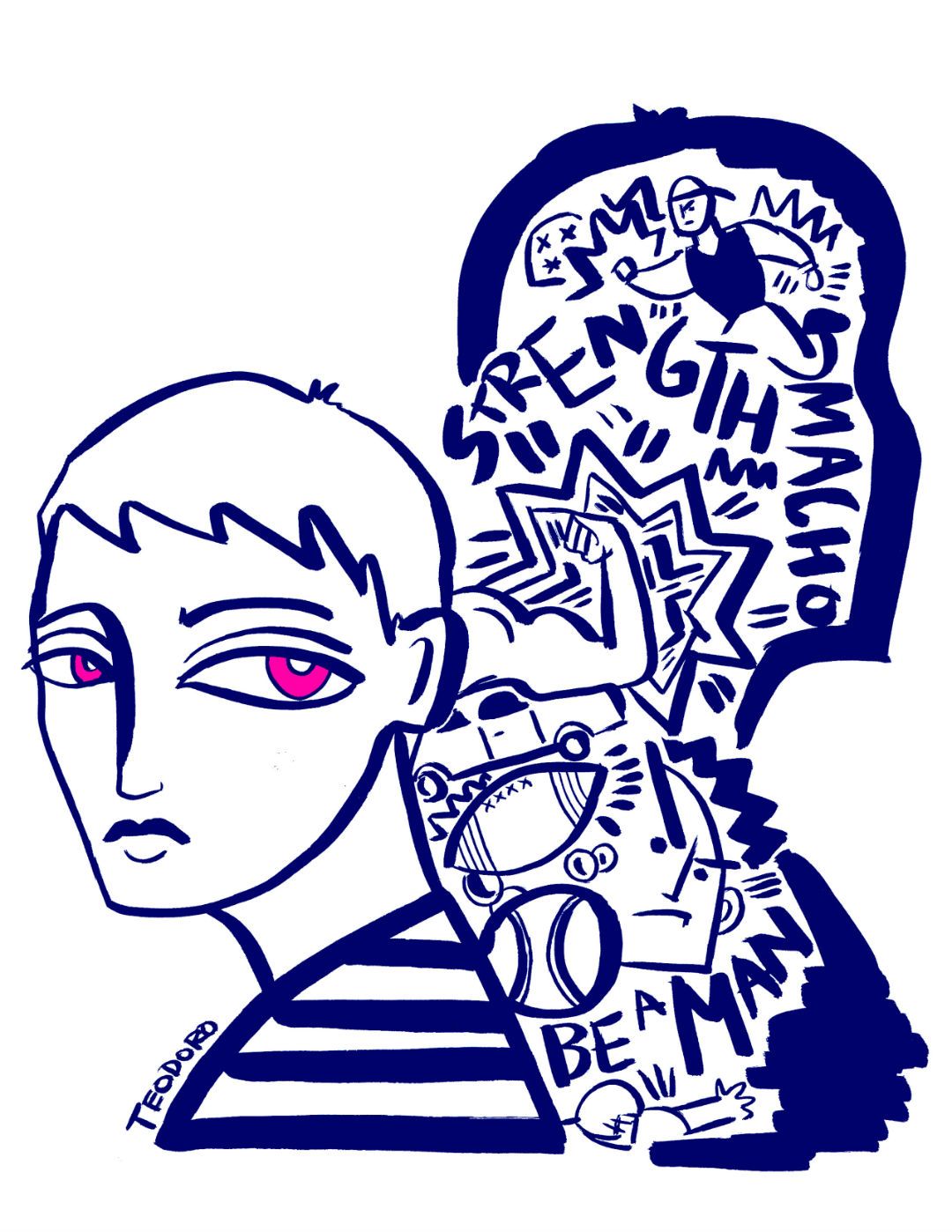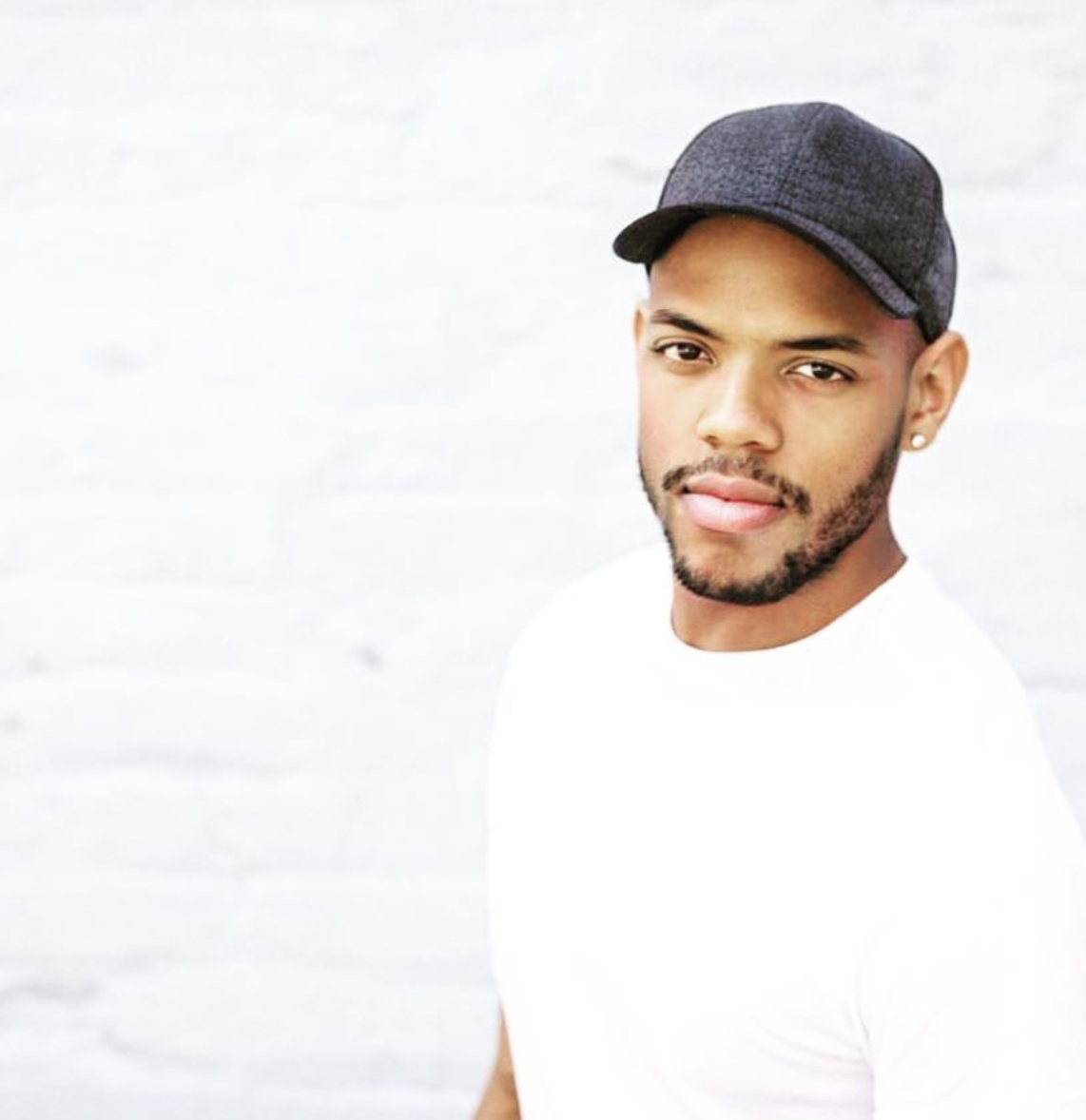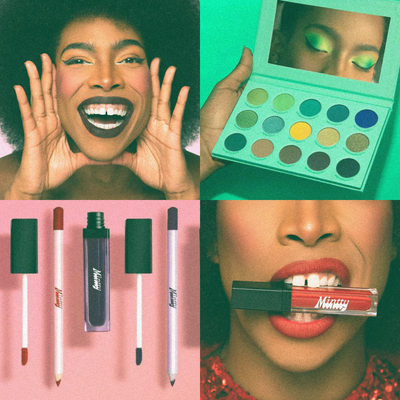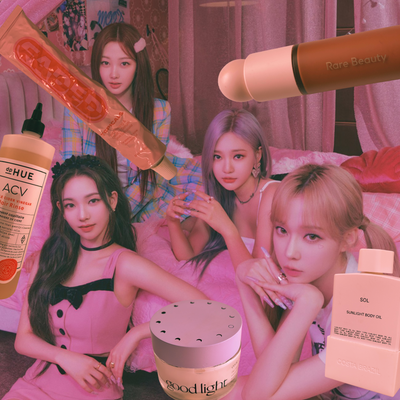

In partnership with Roman
Masculinity: let’s talk about it. From the inception of our site back in 2016, our mission statement has been to redefine masculinity. A year and a half later, masculinity is now front and center in our national conversation. It’s why we decided to launch our first Masculinity Week. We’ve partnered with a company that shares our values with Roman, a company that’s redefining the relationship men have with their own health. They believe that the more we talk about, communicate, and confront our problems, the more empowered we’ll be. This week, we’re introducing important stories unpacking masculinity and how we, as men, can empower one another. We’re in this together.
It was the summer after I turned 12 when I first began to realize how much trouble being a black man would get me into.
It wasn’t an easy year to begin with. I was constantly uncomfortable in my own skin and my budding attraction to the other boys at school – coupled with my chunky waistline – weren’t helping matters. Unlike my brawny older brothers, I did not take much of an interest in sports or the outdoors. Instead, I spent hours learning the choreography to Backstreet Boys videos, baking desserts and reading my collection of Baby-Sitters Club novels.
While these specific behaviors went generally ignored in my household, there was something else about me that, when mixed into my overall presence, seemed to unsettle my mother. It was the way I carried myself, my high voice, the switch in my hips when I walked. The way I often expressed my emotions using theatrical mannerisms that seemed offensive to her coming from a boy, especially one that she gave birth to.
SEE ALSO: Gen Z guys are rejecting hypermasculinity in sports.
All year there had been a feeling of pressure building up every time I was in my mother’s presence; she knew she would have to educate me about my place in this world eventually. This tension finally came to a head when after attending a family cookout, she leaned into me as we got in the car and said, “Don’t act like that anymore.” It was during this cookout when I, in plain sight of everyone else at the party, had my first alcoholic beverage: a bottle of Zima. I don’t think anyone knew what it was at the time. (I still don’t know what it was. Does anyone?)
As I mindlessly imbibed, for the first time during my young adolescence I found comfort with myself. It was as if the nagging self-doubts that had come to stalk my every thought had suddenly been switched off, so much so that when Mariah’s Honey started blaring on the speakers, I lost my preteen shit! Busting out the video’s choreography in the middle of the backyard, swinging my imaginary high ponytail and keeping time with every riff Mimi belted.
“You’re a black man. You can’t be like that.”
Three of my female cousins, all within a year of my age, flanked me in a semi-circle and danced along. As we lived our best lives, I could see out the corner of my eye my mother’s blank expression. I had come to know this as the face she wore when she was feeling a mix of anger and embarrassment, like that time I loudly requested a pair of Jasmine-and-Aladdin dolls for my birthday in front of everyone at Toys R Us. That shit did not go over well.
“Act like what?” I asked.
She turned to the back seat to face me, blank stare and all, and said, “You’re a black man. You can’t be like that.”
“But how do I ‘be’ like a black man?” I asked with Chandler Bing air quotes.
She just rolled her eyes at my stepfather and turned back around. Of course, I knew what she meant. It had always been clear to me growing up in a black community that the world held black men to a different standard. It would not become clear why until I grew older, and back then, at twelve, I was not ready to accept that these standards would be applied to me.
While our white counterparts have always had the luxury of walking in the footsteps of great artists and philosophers, a model for black men who viewed themselves as more sensitive did not exist until recently.
I’m sure I don’t have to tell you that black men as a group, especially young black men, have traditionally resided in the collective imagination of the world as two-dimensional figures. Angry, domineering, unsympathetic, and very nearly inhuman. Depictions of black men as criminals and thugs by popular films going back ages (see: Birth of a Nation) and current national “news” outlets (see: Breitbart) further this image. But while black mothers raising black boys live with the knowledge that these nightmarish impressions of black men will be awkwardly placed over their children by the world like an ill-fitting Halloween mask, there exists a seemingly counterproductive instinct in many black households to “toughen up” sons and condition them not to display emotions that might be considered weak.

While this form of child rearing is in no way, “a black thing,” like most other things, being black adds extra layers of meaning. Historically, society did not make room for men of color who pursued more graceful approaches to life. While our white counterparts have always had the luxury of walking in the footsteps of great artists and philosophers, a model for black men who viewed themselves as more sensitive did not exist until recently. Steering your boys away from habits that would not serve them in finding viable work was about utility more than anything. And what was once survival, is now tradition.
Furthering the distance between healthy examples of black masculinity and me was the rise of Hip-Hop culture, not to be confused with Hip-Hop itself. Hip-Hop is only a genre of music; a form of expression to be used in whatever way an artist chooses. Hip-Hop culture, however (at least via BET) presented a largely flat image of black men as misogynistic, materialistic, and brutish. It was an image bought into, wholesale, by my two older brothers who provided a jarring juxtaposition, making my every feminine quirk seem that much more peculiar. In the model of their late 90s idols, they sported oversized clothing, bandanas and hoodies and rarely displayed any outward emotion outside of crass humor and anger.
However, I continued to make trouble on into middle school where I became the only male student in what used to be a girls’ dance class. This meant that during P.E., while all the other boys in my grade were playing basketball, I was doing Zumba moves to Lou Bega’s Mambo No. 5 across the gym. At this point though, I no longer had two popular older brothers who went to the same school and would soon suffer my first brush with bullying. (Though to be honest, as I picture myself dancing in that gym it’s hard to say I didn’t have it coming.)
Those who come from minority families will tell you that there often exists an intense pressure to conform and succeed in very traditional, measurable ways, not for yourself, or to make your parents proud.
Now, simply being me came with the disadvantage of daily harassment and the constant threat of physical violence. Seeing no other choice, I began stealing my older brother’s baggy jeans in favor of my fitted chinos and traded in my multi-colored Skechers for scuffed Timberland boots. I also quit my dance class and took up football for one semester. (I literally showed up to one practice.) While the bullying eased, during this time, I began to feel increasingly isolated from myself and started to withdraw from the world around me. My grades suffered, leading to me eventually leaving high school in favor of homeschooling. My always-plump waistline had ballooned to flat-out fat.
My relationship with my mother began to suffer as well, although this development didn’t come out of nowhere. I had always resented my mother’s constant pressure to change who I was as a child, and now as an isolated teen, actively hiding from the world, I hated what I viewed as her complicity in my exile. She began to “forget” to invite me when family gatherings were happening, so that I could not attend. It felt as if she had made the decision that she would rather have me hidden away than risk me living my life in the open for fear I would embarrass the family.
Those who come from minority families will tell you that there often exists an intense pressure to conform and succeed in very traditional, measurable ways, not for yourself, or to make your parents proud but because you act as sort of ambassador to your entire family, sometimes your entire race! It would take me years to overcome my anger. Even then, I could only begin understanding her by realizing that she, like most black mothers of her generation, thought they had no choice in how they raised their children, especially the boys.
As a grown-ass man now, I’ve been able to carve out an identity for myself in no small part thanks to the recent visibility of more sensitive and emotionally complex role models like Pharrell, Kanye, Common, and President Barack Obama. They, among others, have helped to normalize a more nuanced view of black men. Making it possible for the black community, and society as a whole, to see beyond the archetypes of our past and imagine a fresher take on black masculinity for our children. I would hate for the next generation to repeat the mistakes I made while trying to find my identity. Like, no child should ever again have to endure Zima.







